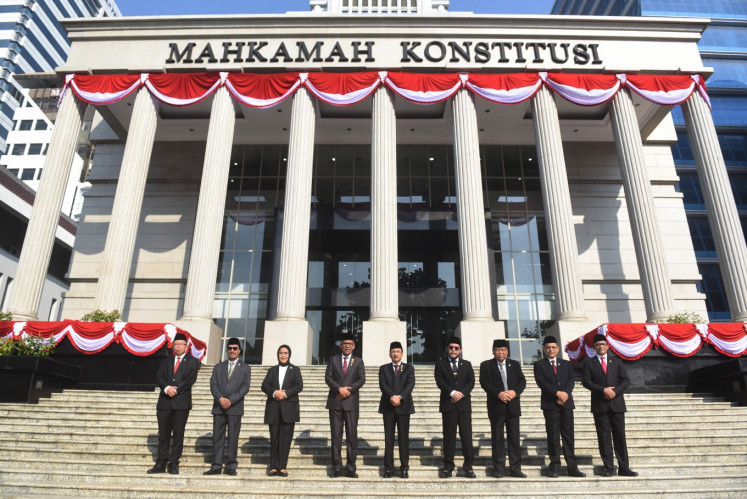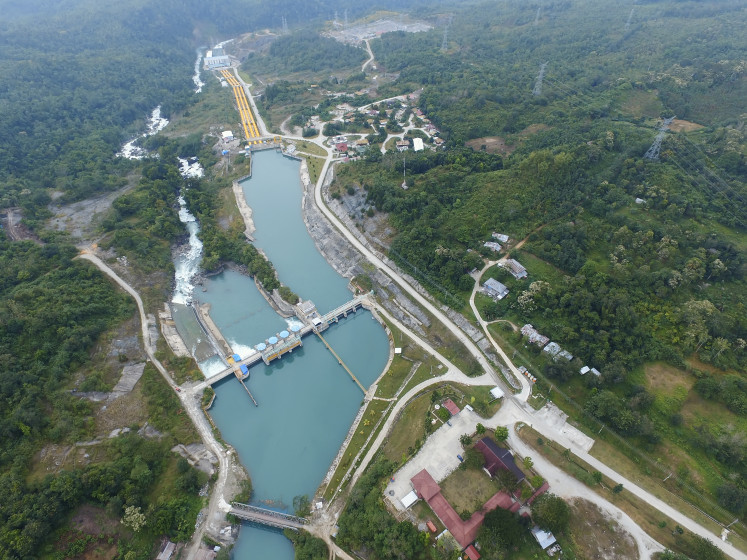Popular Reads
Top Results
Can't find what you're looking for?
View all search resultsPopular Reads
Top Results
Can't find what you're looking for?
View all search results‘G20 must retain relevance for developing countries’
The draft agenda for the upcoming G20 trade ministers meeting that is being circulated internally among members is too focused on the interests of big industrialized countries and not enough on what developing countries need, says Indonesian Trade Minister Gita Wirjawan
Change text size
Gift Premium Articles
to Anyone

T
he draft agenda for the upcoming G20 trade ministers meeting that is being circulated internally among members is too focused on the interests of big industrialized countries and not enough on what developing countries need, says Indonesian Trade Minister Gita Wirjawan.
Gita said that under the current draft, the meeting in Puerto Vallarta, Mexico, later this week, would not spare time to discuss the much anticipated liberalization of the agriculture sector, which had been at the heart of the process to create a multilateral trade deal under the Doha Development Agenda.
“I have spoken with Brazil and South Africa, basically we voiced the same concerns. There has to be an initiative to place the issue of trade liberalization of the agriculture sector on the table. We need to take a stance,” Gita said in Jakarta on Tuesday.
As the premier forum for global-development drivers, the G20 had to reinvigorate its relevance for developing countries, he said.
He added that setting the agenda on the trade-ministerial meeting was crucial to build the right momentum for the heads-of-state meeting scheduled for June 18-19 in Los Cabos, Mexico.
“The past meetings and summits were dominated by the eurozone crisis. We hope that the next G20 summit will pay more attention to the interests of developing countries,” he said.
Apart from Indonesia, other G20 members such as Brazil, India and South Africa will make use of the Other Matters session in this week’s meeting to raise their concerns and prevent what they see as efforts by industrialized countries to propose an alternate global trade narrative to the Doha framework under the WTO.
“What the developed nations have put on the Mexico agenda are trade facilitation and service liberalization.
They regard trade facilitation as an item that is relevant to the interests of developing countries. But let’s take a look at India’s case. Trade facilitation is about customs, how customs can be improved through liberalization. What India wants is for the liberalization to progress at the right pace,”
“I think other BRICS countries are on the same page. Trade facilitation could be contrary to the best interests of developing economies. It has to move at the right pace. In our view, what is lacking in the whole process is progress on the liberalization of agriculture,” Gita said.
Gita said developing countries still faced many challenges, particularly in creating and maintaining jobs in the agriculture sector due to a series of deficiencies such as a lack of access to financing and limited infrastructure.
High tariff barriers and domestic subsidies implemented by industrialized countries would further hinder developing countries from better promoting growth and creating jobs.
Earlier this month, members of the BRICS countries raised their disappointment about the Mexico meeting’s agenda, saying that it appeared to undermine the independence and multilateral character of the WTO by asking trade ministers to agree on the creation of a super-body headed by the chiefs of OECD countries and the WTO to oversee all the review and monitoring functions of global trade.
South Africa’s Trade Minister Rob Davies told the media that the draft agenda issued by Mexico was silent on the Doha trade talks. Davies said that it was important to put an emphasis on the transparency and inclusiveness of initiatives on global-trade governance.
The minister insisted that agriculture was at the heart of the Doha Development Agenda and that little had been done to address the continued trade-distorting subsidies of the industrialized countries.









